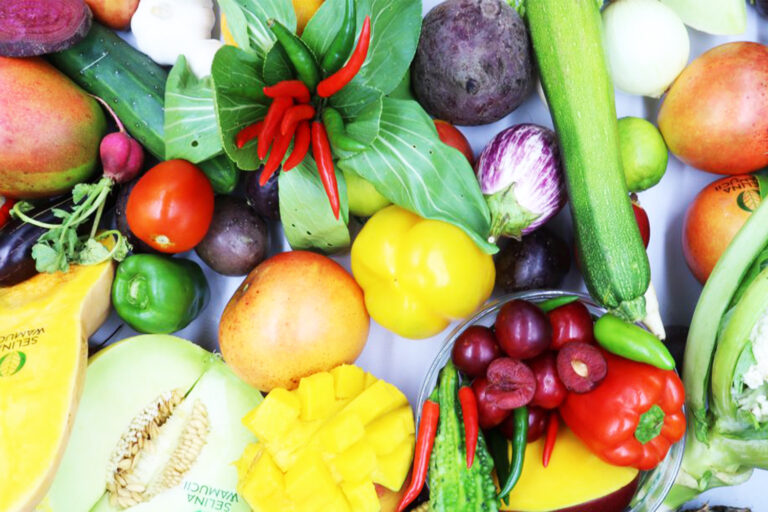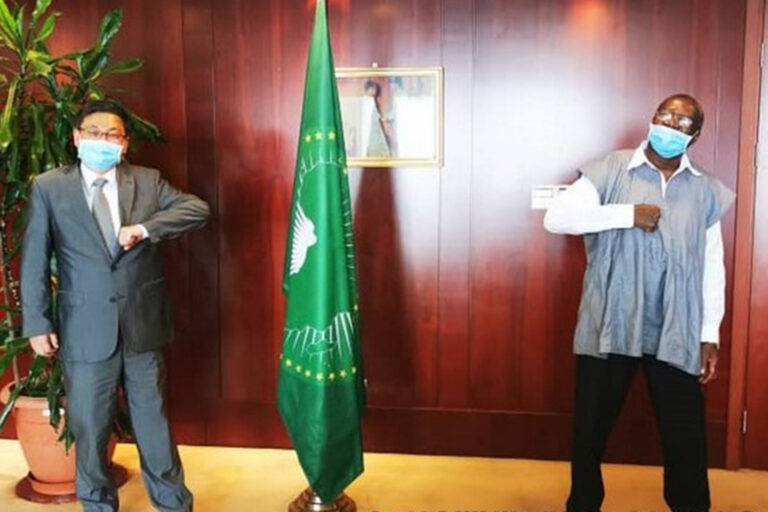Firehiwot Tamiru, CEO of Ethio-telecom, said the service improvement aims to limit the movement of people outside of their home and stem the spread of coronavirus (COVID-19).
According to her, the company will avail ‘Stay at Home Mobile Package’, ‘Stay Connected,’ and ‘Stay Active’ services as of tomorrow.
‘Stay at Home Mobile Package’ allows subscribers to make 30 minutes voice call locally for five birr, together with 20 free local text messages.
It also offers subscribers 100Mb internet service for five birr and 250Mb internet service for 10 birr, along-with 20 free local text messages.
‘Stay Connected’ services offers subscribers 300Mb internet service and 30 minutes local voice call for 15 birr, with 20 free local text messages , she said.
All the services will be available from 6am in the morning to 4pm in the afternoon.
The state owned telecom provider also announced a donation of 100 million birr in support of the country’s effort to prevent the spread of corona virus (COVID-19) pandemic.
“The organization will continue discharging its social responsibility” said the CEO.
Ethio-telecom has announced plans to improve its services beginning from tomorrow, April 16, 2020.
African farmers face difficult times ahead amidst COVID-19, locust swarm
Millions of farmers across Africa are facing economic devastation as COVID-19 pandemic disrupts exports and global food supply chains according to the Impact of Coronavirus on Africa’s Agriculture April 2020 report released by Selina Wamucii that gives a most-recent and ground-up perspective on how the pandemic is affecting African farmers.
According to John Oroko, CEO of Selina Wamucii, intra-Africa trade is around 2% while exports from Africa to the rest of the world range from 80% to 90% of total exports, of which a huge share is made up of agricultural produce.
“The COVID-19 pandemic has unfortunately come at a time when our farmers depend largely on exports to markets outside the continent and also before the commencement of trading under the African Continental Free Trade Area (AfCFTA) that was scheduled to commence on July 1, 2020, thereby creating a single continental market of more than 1.3 billion people. Now, unlike no other time, we can see a demonstration of why the success of the African Continental Free Trade Area will be directly linked to securing the livelihoods of African farmers in the future,” says Oroko. “COVID–19 is severely disrupting trade in key markets for Africa’s agricultural produce and African farmers are bound to experience a nightmare in export market access,” adds Oroko.
African farmers are a relatively elderly demographic and 70% of Africa’s food is currently produced by women, who are also primary caregivers across many of Africa’s rural regions. This means therefore that a key segment of the farmers in the region is also at a higher risk of contracting COVID–19. Morocco tops the list of African countries whose agricultural exports face the highest risk largely due to the country’s over-reliance on the European market given its close proximity and well-established traditional trading ties.
In 2018, Morocco’s FFV, fish, seafood and cut flowers, worth $3 billion was exported to the European Union, translating into over 78% of the FFV, fish, seafood and cut flowers worth $3,846,083 exported by Morocco to the rest of the world in that year.
Kenya’s agricultural exports also face a great risk mainly due to the over-reliance on fresh-cut flower exports, the bulk of which end up in the European Union. Additionally, over 50% of Kenya’s FFV exports and nuts go to the European Union and China, which are markets that have already been shaken up. In 2018, Kenya’s FFV and nut’ exports worth $223,113,000, out of the total $482,559,000 exported, went to European markets. Before the COVID–19 pandemic, farmers in Kenya and other East Africa countries were already suffering severe locust invasion and now COVID–19 has worsened the situation.
The U.N. Food and Agriculture Organization (FAO) has warned that a new wave of locust swarms are starting to form, representing an unprecedented threat to farmer livelihoods – specifically in Kenya, Ethiopia, and Somalia. As a result, farmers are facing a double catastrophe from the impact of COVID–19 and the locusts at the same time, a combination that will negatively affect their farm yields.
Habesha Steel donates over 50 million birr for coronavirus fight
Habesha Steel Mills Plc responded to the government’s call for the support to mitigate the effects of corona virus in Ethiopia.
The Indian firm announced a donation of 50 million birr worth of medical supplies including oxygen to health facilities to help the fight against the pandemic.
According to Kishen Raval, Managing Director of Habesha steel, this is the time we stand together. “The factory will produce the products in its own factory which is located around Dukem, Oromia region,” Raval told Capital.
Starting form the announcement of the first case in Ethiopia the government has been calling individuals and companies to support its resource mobilization in the effort to coordinate the gathering of financial and non-financial materials for COVID-19 emergency preparedness.
Besides giving the medical supplies, the factory is planning to support around 500 people that are living around its factory at a time of a lock down. “We are planning to give them fully prepared hot meal because if we give them the materials there will be a lot of people who don’t have the other ingredients to prepare the food,” said the managing director.
The factory is also well known by its developmental works in the surrounding community. It built 106 houses for displaced Ethiopian citizens, delivered a constant fresh water supply to Taddecha village in Dukem. It also provides the cost of education for many children every year and regularly donates food, clothes, blankets etc to the less fortunate in the area.
“We have built road and speed breakers for municipal school due to the many accidents whilst children were walking to school; we also helped the police force by building police guard posts at different areas,” the managing director told Capital.
Habesha Steel has more than 1500 employees and “we have built the modest customer oriented company and have shown a steady growth due to its focus on quality and modern system of production, this is because of our strong committed and loyal employees from the community, so we have to help each other at such times” said Kishen Raval.
“We want to be a role model for other industries, our collective and concerted efforts to help one another in times of great need will be the only way we overcome this difficult times,” added the managing director.
One of the largest steel factories in Ethiopia Habesha Steel produce full range of reinforcement bars for construction of residential and commercial structures, flyovers, bridges, and power plants.
African diaspora questions China relationship after spike in discrimination over Covid-19
Chinese Ambassador meets African Union Deputy Chairperson over the attack
A spike in racial discrimination in China prompted by fears over the Covid-19 pandemic has led some in the African diapora to reevaluate the relationship between the African continent and Beijing.
Over the past week, footage has been published on social media showing Africans in the southern Chinese city of Guangzhou being evicted from their apartments, refused access to hotels or restaurants, and being forced to sleep on the streets. These incidents occurred ostensibly as part of efforts to halt the spread of Covid-19 in the country but have led to a diplomatic crisis between Beijing and African nations.
The images sparked outrage across Africa, with the hashtag #chinamustexplain trending on Twitter and Chinese ambassadors being summoned by irate officials in Nigeria and Ghana, to name but a few. African ambassadors in China wrote to the foreign minister of China over what they called the “stigmatisation and discrimination” being faced by their citizens.
Following the reported incidents of brutalities and related injuries allegedly inflicted on Africans in Guangdong province in China, the Deputy Chairperson of the African Union Commission, Kwesi Quartey called the Chinese Ambassador to the African Union, Liu Yuxi, to the Commission for a discussion on how the matter would be resolved.
‘Quartey informed Yuxi that given the closeness of the relations between China and Africa, the reported incidences were clearly unacceptable,’ according to a statement from the AU.
In his response, ‘Yuxi reiterated the immense value China places on its relationship with Africa and China’s commitment to protecting and developing this relationship. He registered the regret and embarrassment that the incidents have caused China. Yuxi recounted steps the Government of China has taken, and continues to take to restore calm and to protect the safety, security and dignity of the African population in China,’ the statement reads.
Yuxi also informed the Deputy Chairperson that, the Chinese whose social media post caused the unfortunate incident has been arrested. Also, law enforcement personnel exerting excessive force have been reprimanded and cautioned to exercise restraint whilst discharging their duties. He also mentioned that two hotels have been secured for the affected Africans and the cost would be borne by the Chinese Government. Furthermore, seized passports and personal belongings have been retrieved and handed over to their rightful owners, Yuxi added.
‘Clearly this matter has caused grief, pain and humiliation to all Africans,’ a tweet reads.
‘Africa values its relationship with China but not at any price. Further act of brutality meted out to Africans will not be countenanced by the African Union and indeed all Africans,’ another tweet reads.
Beijing initially chose to dismiss and deny the accounts of unfair treatment.
“We do not have discrimination in China against African brothers,” foreign ministry spokesman Zhao Lijian said on Monday. He then accused the United States of trying to exploit the issue to undermine China’s relations with Africa. The statement came after a group of African ambassadors in Beijing expressed concern over numerous reports of Africans being forced into quarantine or being singled out for scrutiny by health authorities.
The tone then appeared to soften, as China’s Foreign Minister Wang Yi spoke on the phone with Moussa Faki Mahamat, the chairperson of the African Union Commission, with Wang assuring Mahamat that measures were being taken to improve the situation of Africans in Guanghzou. Mahamat later described the relationship between China and Africa in a tweet as being “strong and brotherly”. It now appears that most of the displaced Africans in Guangzhou have found places to stay and that city authorities are engaging in consultations with the African community as well as academics to repair the relationship.
On Monday, ambassadors and envoys from more than 20 African nations met with China’s assistant minister of foreign affairs, Chen Xiaodong. Chen vowed to lift the health measures aimed at African residents except for those with confirmed cases of Covid-19, AFP reported.
Over the past 20 years, China has become an increasingly influential presence on the continent as Africa’s natural resources have helped fuel the country’s meteoric economic development. According to data from Johns Hopkins University, the Chinese government as well as its banks and companies have lent some $143 billion to Africa between 2000 and 2017, often to finance large infrastructure projects. Recent estimates put the number of Chinese citizens currently residing in Africa at one million while some 200,000 Africans live and work in China.
KEY FACTS
- The city of Guangzhou, which has just 463 cases of COVID-19, said that it had tallied 111 imported cases, leading to fears of a second-wave outbreak, according to the South China Morning Post; officials said 10 cases were linked to the business district known as “Little Africa,” including 5 cases linked to a single restaurant.
- Following the outbreak, Guangzhou officials announced that all residents of African descent-about 4,500 people-must quarantine for 14 days “regardless of their previous circumstances or how long they have been in Guangzhou,” reports the South China Morning Post, adding that African residents’ homes will be monitored with tracking devices that will alert officials if they “open the door.”
- The ban led to reports of African residents being evicted and banned from businesses; people have taken to social media to document evicted African residents sleeping on the street, interacting with police and Nigerian diplomats delivering food to their now-homeless compatriots, causing foreign ministers of Uganda, Kenya, Ghana and Nigeria to speak out in protest.
- African diplomats reportedly sent a letter to China’s Foreign Minister Wang Yi saying, “The Group of African Ambassadors in Beijing immediately demands the cessation of forceful testing, quarantine and other inhuman treatments meted out to Africans.”
China has denied these allegations of racism, saying that Africans in Guangzhou are not being targeted, with foreign ministry spokesman Zhao Lijian saying that the Chinese government “treats all foreign personnel in China equally, opposes any differential practices targeting specific groups of people, and has zero tolerance for discriminatory words and deeds,” according to the South China Morning Post. - The United States consulate in Guangzhou advised African Americans to stop traveling to the city on Saturday, the South China Morning Post reports.
- One social media post showed a sign in a McDonald’s restaurant that read: “We have been informed that from now on black people are not allowed to enter the restaurant”; McDonald’s has since told Forbes that once it learned of the sign, it “immediately removed the communication and temporarily closed the restaurant” as it was “not representative of our inclusive values.”






